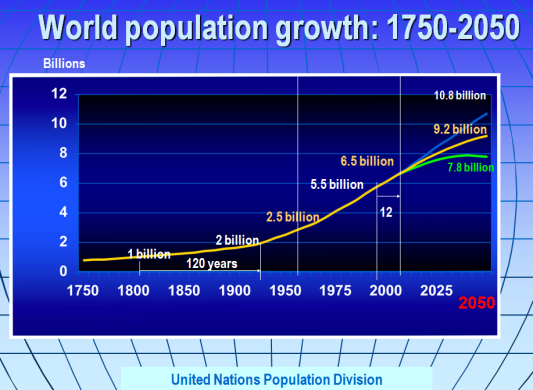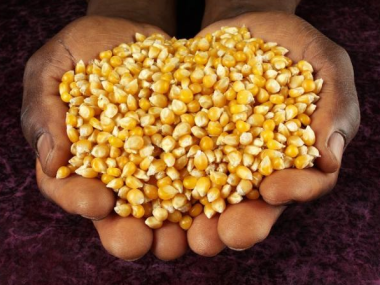LUDWIGSHAFEN, GERMANY, November 8, 2011 – Consumers’ interest in agriculture and personal respect for farmers is high, even in countries where less than two percent of the population works in agriculture, according to the BASF Farm Perspectives Study, which surveyed 1,800 farmers and 6,000 consumers. Yet farmers and consumers also agree that farmers’ reputations remain low. The study, which outlines the way farmers and consumers view the farming profession, its challenges and its support network, revealed surprisingly strong agreement on major issues, including the role of farmers and the major challenges farmers are facing in the 21st century. Continue reading BASF Farm Perspectives Study Shows Strong Agreement between Farmers and Consumers
Category Archives: The Food System
Here a Sustainable Farm, There a Sustainable Farm – What’s Going On?
Terry D. Etherton
This article was first published on the IFIC Food Insight Blog on November 4, 2011.
Sustainable is a popular word these days in conversations about the practices used to produce our food. The word is used and misused extensively.
I have asked many folks what sustainable food production means. The answers are diverse, and astonishing in some instances. Relative the latter, some convey that sustainable food production is the only “way” and that unsustainable agriculture doesn’t work. The latter response is more than puzzling to me. If the business is not economically sustainable then it is unsustainable. Continue reading Here a Sustainable Farm, There a Sustainable Farm – What’s Going On?
The Need for Food Biotechnology
Terry D. Etherton
The public discussion about the need for adequate food is a luxury that well-fed people in developed countries can afford. But in developing countries where the population is growing while the supply of farmland shrinks, people are grappling with a much thornier and higher-stakes dilemma. Unless they can grow more food on less land, they may not have enough to eat. The scale of this is already daunting – more than 1 billion individuals in the world go to bed each night hungry. Continue reading The Need for Food Biotechnology
Biotech Firms Warn EU over Pace of GM Crop Approvals
By Charlie Dunmore
BRUSSELS | Tue Oct 11, 2011
(Reuters) – Europe’s biotechnology industry has warned the European Commission that agricultural imports vital to EU food security are increasingly being put at risk, due to the slow pace of the bloc’s approval system for genetically modified (GM) crops.
In a report to be presented to EU policymakers on Tuesday, biotech association EuropaBio said the speed of GM crop authorizations in Europe is slowing — even as governments worldwide seek to step up the pace of their approvals.
“The EU authorization process for GM products takes substantially longer than comparable systems, despite the fact that government processes around the world to assess the safety and impact of GM products are essentially the same,” it said. Continue reading Biotech Firms Warn EU over Pace of GM Crop Approvals
God and Science
Terry D. Etherton
Ag Progress Days (APD) was held a few weeks ago at Penn State. Ag Progress Days is a 3-day event that is hosted by the College of Agricultural Sciences at Penn State University. Typically, APD attracts about 50,000 attendees (for additional insights into what APD is, please see: How I Spent a Summer Day at Penn State’s Ag Progress Days).
This year, the College hosted a program that involved short presentations by various Penn State employees about a variety of scientific topics and agriculture. I was invited to speak about Biotechnology in the Barnyard…a topic near and dear to my heart. An important aspect of my talk addressed the issue of how are we going to feed a growing world population? I believe that the development and application of science will play a role in trying to feed the world in the future. While I have given versions of this talk countless times over the past 30 years, this presentation, actually the question and answer session, turned out to be very different. Continue reading God and Science
In the Pursuit of Communicating Science
Terry D. Etherton
I have spent about 30 years traveling down the “road” of trying to communicate science to the public. It has been an interesting journey. I launched my blog, Terry Etherton Blog on Biotechnology, in 2006 for many reasons, including the idea of providing science-based facts for consumers about many public discussions around food biotechnology in which activists and activist groups try to scare consumers.
During this journey, I have come to appreciate the tremendous need for scientists to become more proactive in communicating science. Specifically, the scientific community needs to be much better at conveying what they do and how science and technology benefit consumers. I have written about this, most recently in Please Explain: Training Scientists to be Better Communicators imploring scientists to get involved.
In my travels down this “road”, I have become sensitized to the issue of how is the information I present being “heard” by the audience. This can be a real adventure, especially when some in the “audience” share “they don’t believe the message(s)” or messenger (i.e., me). This raises the interesting question of what to do? Continue reading In the Pursuit of Communicating Science
Did You Ever Wonder Where Your Milk Came From?
Terry D. Etherton
Did you ever wonder where your milk comes from? And, no, I am not referring to cows. My question pertains to the geographic regions of the United States that contribute most to milk production.
As you will see, the results are revealing. Continue reading Did You Ever Wonder Where Your Milk Came From?
How Much Food will the World Need in 2050?
Terry D. Etherton
Much has been written by others and myself about the need to feed a growing World population that will increase to between 9 and 10 billion individuals by 2050 (based on estimates from the Population Estimates and Projections Section of the UN). Making projections about the impact of population growth on food production raises the question of just how much food will be required to feed 10 billion people? While the question is straightforward, developing these estimates is remarkably challenging. The vast majority of numbers are derived from food disappearance data, that is food for human consumption that is produced is assumed to “disappear” via consumption. This is problematic, in part, because it has been estimated that 30 to 40% of food in developed and developing countries is wasted (Godfray et al., 2010). This wastage spans the spectrum of the food system from production to plate waste.
The question emerges, then, of whether there is more accurate approach for estimating projected food needs in 2050? Continue reading How Much Food will the World Need in 2050?
Technology, Diet and the Burden of Chronic Disease – Another Perspective
Terry D. Etherton
In the April 6 issue of the Journal of the American Medical Association (JAMA), Dr. David Ludwig concluded in a commentary “Technology, Diet, and the Burden of Chronic Disease” that “reducing the burden of obesity-related chronic disease requires a more appropriate use of technology that is guided by public health rather than short-term economic considerations”. In the commentary, Dr. Ludwig’s usage of “technology” pertains primarily to food technology.
When I read this article and got to the last paragraph…I thought: Here we go again! Another not so subtle condemnation of food technology with a different “slant”…if you make food technology better it could help reduce the burden of obesity! My opinion is that this strategy won’t do much to solve a very serious public health issue…the ongoing obesity epidemic. Continue reading Technology, Diet and the Burden of Chronic Disease – Another Perspective
Why Genetically Modified Crops?
Terry D. Etherton
Recently, a compelling and persuasive article was published by Dr. Jonathan D. G. Jones in a scientific journal (the Philosophical Transactions of the Royal Society) entitled “Why Genetically Modified Crops“. In the article, Dr. Jones shares his exasperation over the widespread misrepresentation of genetically modified (GM) plant science. Importantly, he presents that rationale (that is widely accepted by the scientific community) that adopting GM crops is essential for agriculture in the future because it reduces its environmental impact by reducing pesticide applications and conserving soil carbon by enabling low till methods. Dr. Jones concludes with the perspective that “it would be perverse to spurn this approach at a time when we need every tool in the toolbox to ensure adequate food production in the short, medium and long term”. Continue reading Why Genetically Modified Crops?





